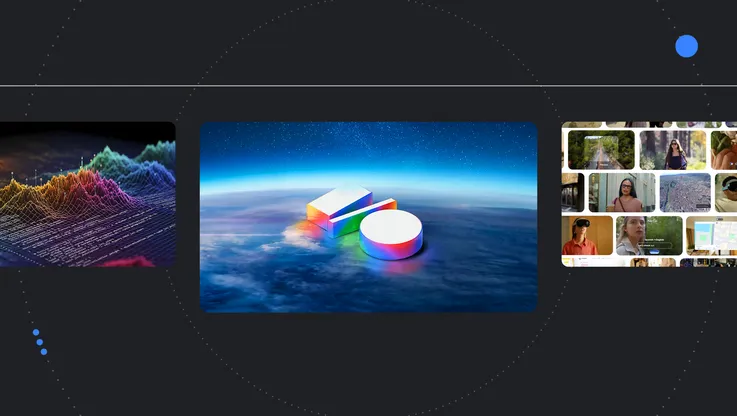Here’s the next cohort of the Google.org Accelerator: Generative AI

Today, Google is announcing the 20 organizations joining the newest Google.org Accelerator: Generative AI cohort. These organizations, which will use generative AI to address significant societal problems including crisis response, antimicrobial resistance and children's mental health, were selected through an open call for nonprofits, social enterprises, civic entities and universities. Each one will receive a share of $30 million along with six months of technical training, pro bono support from Google’s AI experts and access to Google Cloud credits.
Google.org launched the Generative AI Accelerator in 2024 to bring the benefits of AI to the social sector by providing nonprofits with funding and technical expertise. The opportunity is clear: in a recent Google.org survey, nearly two-thirds of nonprofits using AI tools reported feeling more confident in serving their organization’s mission when they use AI apps and features 1 , yet only one in five say that at least half their organization uses generative AI. Now, seven months after graduating, members of our first cohort like Tabiya, a nonprofit addressing global youth unemployment, are seeing the benefits. Tabiya has reached more than 8,000 jobseekers in half the time and at a quarter of the cost thanks to Compass: an open-source conversational agent built using Gemini.
Now, here’s the newest group of participants in the 2025 Generative AI Accelerator:
- 3iS improves crisis response by providing real-time insights that help manage risk, drive anticipatory action and allocate resources more efficiently for hundreds of thousands of people.
- Aga Khan University is building a clinical decision support platform to address Kenya's severe doctor shortage with real-time, evidence-based clinical guidance that enhances diagnostic accuracy, treatment decisions and adherence to local guidelines.
- ARMMAN provides personalized, continuous learning and support for auxiliary nurse-midwives managing high-risk pregnancies through a multilingual, multimodal copilot.
- CETA Global improves mental healthcare outcomes and addresses shortages by scaling mental health provider training via a simulation platform offering realistic role-play and personalized feedback.
- Children’s Health Council uses AI to empower K-12 educators with real-time, evidence-aligned, scenario-specific support for student mental health and learning needs.
- Darsel improves math learning rates for K-12 students globally through a gen AI-powered tutor that delivers personalized learning based on individual student needs.
- Day of AI Australia supports teachers and students in developing critical AI literacy and confidence through hands-on AI experiences and curriculum-aligned lessons
- Earth Genome translates complex satellite imagery into clear, actionable insights, enabling rapid detection of environmental threats for researchers, decision-makers and frontline workers.
- iNaturalist enhances biodiversity data by converting thousands of identification remarks into natural language explanations.
- Lenny Learning provides counselors and teachers with on-demand, evidence-based behavioral-health resources, replacing manual planning with ready-to-use lessons, interventions and strategies to support youth well-being.
- Lit advances early literacy by combining kid-optimized speech recognition with the science of reading to personalize instruction at scale.
- Nava PBC uses gen AI to automate key application tasks — with human oversight — to significantly boost caseworker efficiency by freeing up valuable caseworker time, reducing administrative burdens and streamlining processes.
- One Degree streamlines access to life-changing services and benefits by simplifying enrollment for families and equipping frontline workers with smart referral tools that improve coordination and service delivery.
- Paritii automates administrator workflows, streamlines student support and delivers cost savings to improve satisfaction and retention for thousands of students across a growing network of campuses.
- Phare Bio democratizes AI-driven antibiotic discovery through an open-source platform that enables researchers globally to rapidly design and test novel antibiotics that will help people facing antimicrobial resistance.
- Red de Innovación Local provides tailored access to best practices and data-driven insights to support decision-making for policymakers and officials across hundreds of cities in Latin America.
- Signvrse creates real-time, offline sign language avatars to bridge communication gaps and interpreter shortages for millions of deaf individuals in Africa.
- SkillUp Coalition in partnership with Climb Together, Upsolve, and WhereWeGo, empowers hundreds of thousands of low-income Americans by providing career training, social capital and debt relief, effectively breaking down job barriers, increasing employment and raising lifetime earnings.
- Technical University of Munich empowers millions of cancer patients and thousands of medical professionals by providing personalized, accessible oncology guidelines and information to bridge knowledge gaps and improve care.
- Visilant enables accurate eye screening, personalized counseling, and follow-up support to patients across India through AI-enabled analysis of images and information collected by health workers.
Learn about the new cohort at g.co/Accelerator/GenAI, and read more about other Google accelerators at g.co/Accelerator/Programs.






